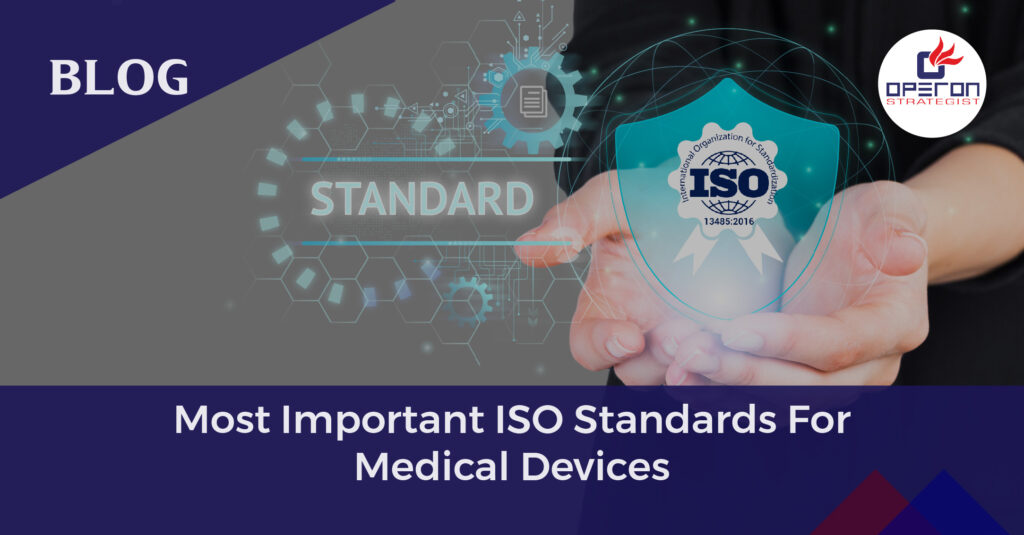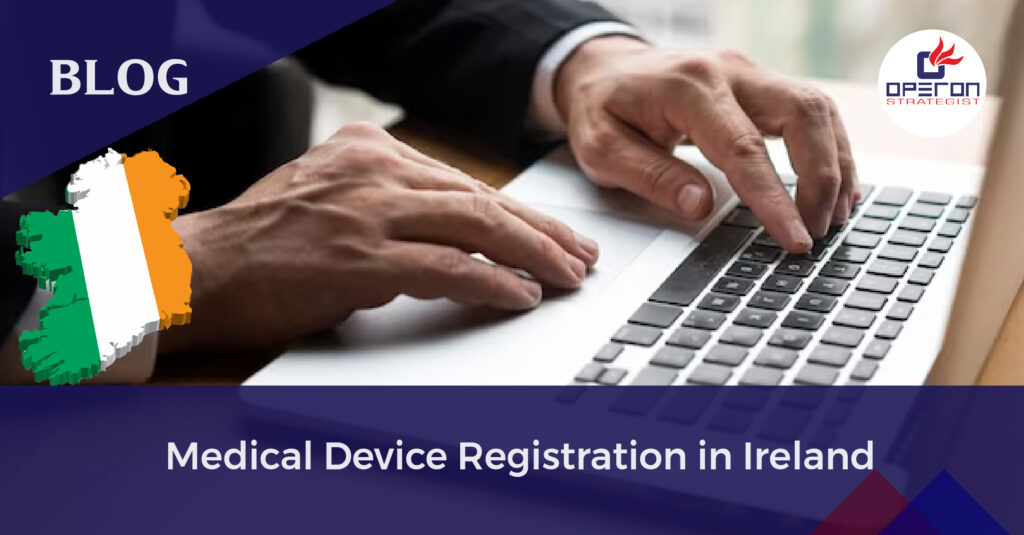ISO Standards For Medical Devices Manufacturers – Ensure Compliance & Quality
The International Organization for Standardization (ISO) plays a vital role in shaping global medical device standards. These standards ensure safety, performance, and regulatory compliance—helping manufacturers build high-quality devices that meet FDA, EU, and other global requirements. While ISO standards are not always mandatory, they serve as essential guidelines for risk management, quality control, usability, sterilization, and more.
In this blog, you’ll explore key ISO standards relevant to medical devices and understand how adhering to them enhances product reliability and approval processes.
For the Latest Medical Device ISO Standard Versions, Get in Touch With Us!
Why ISO Standards Matter in Medical Device Manufacturing
- Ensures product safety and performance
- Supports regulatory compliance in global markets
- Builds trust with healthcare providers and patients
- Minimizes risks through structured management systems
- Provides documentation and validation for audits and certifications
List of Most Important ISO Standards for Medical Devices
| No. | ISO Standard | Name |
|---|---|---|
| 1 | ISO 13485 | Medical devices — Quality management systems — Requirements for regulatory purposes |
| 2 | ISO 14971 | Medical devices — Application of risk management to medical devices |
| 3 | IEC 62304 | Medical device software — Software life cycle processes |
| 4 | ISO 62366-1 | Medical devices — Part 1: Application of usability engineering |
| 5 | ISO 11135 | Sterilization of health-care products — Ethylene oxide — Requirements for sterilization processes |
| 6 | ISO 15223-1 | Medical devices — Symbols used with manufacturer-supplied information |
| 7 | ISO 80369-1 | Small-bore connectors for liquids and gases in healthcare — General requirements |
| 8 | ISO 11607-1 | Packaging for terminally sterilized medical devices — Materials and barrier requirements |
| 9 | ISO 11607-2 | Packaging for terminally sterilized medical devices — Validation requirements |
| 10 | ISO 11137-1 | Sterilization of healthcare products — Radiation — Process requirements |
| 11 | ISO 14155 | Clinical investigation of medical devices — Good clinical practice |
| 12 | ISO 19001 | In vitro diagnostic devices — Information supplied with reagents |
| 13 | ISO/TR 24971 | Medical devices — Guidance on applying ISO 14971 |
| 14 | ISO 11737-2 | Sterilization of healthcare products — Microbiological tests of sterility |
| 15 | ISO 16571 | Systems for evacuation of plume generated by medical devices |
| 16 | ISO 20916 | In vitro diagnostic devices — Clinical performance studies |
| 17 | IEC 80001-1 | Safety and risk management for connected medical devices |
| 18 | IEC/TR 80002-1 | Medical device software — Guidance for applying ISO 14971 |
| 19 | IEC/TR 80002-2 | Medical device software — Validation for quality systems |
| 20 | IEC/TR 80002-3 | Medical device software — Process reference model |
| 21 | ISO 10993-1 | Biological evaluation — Risk-based evaluation and testing |
| 22 | ISO 10993-2 | Biological evaluation — Animal welfare requirements |
| 23 | ISO 10993-4 | Biological evaluation — Tests for blood interaction |
| 24 | ISO 10993-5 | Biological evaluation — Tests for in vitro cytotoxicity |
| 25 | ISO 27186 | Active implantable devices — Connector requirements |
| 26 | ISO 15194 | In vitro diagnostic devices — Certified reference materials |
| 27 | ISO 15883-1 | Washer disinfectors — General requirements and tests |
| 28 | ISO 15883-2 | Washer disinfectors — Thermal disinfection for instruments |
| 29 | ISO 15883-5 | Washer disinfectors — Cleaning efficacy requirements |
| 30 | ISO 9626 | Stainless steel needle tubing — Requirements and tests |
| 31 | ISO 11117 | Gas cylinders — Valve protection and guards |
| 32 | ISO 16142-1 | Safety principles for all non-IVD devices |
| 33 | ISO 16142-2 | Safety principles for all IVD devices |
| 34 | ISO 17664-1 | Processing healthcare products — Critical device information |
| 35 | ISO 17664-2 | Processing healthcare products — Non-critical device information |
| 36 | ISO 12052 | Digital imaging communication in medicine (DICOM) |
| 37 | ISO 14117 | Active implantable devices — EMC test protocols |
| 38 | ISO 19223 | Lung ventilators — Vocabulary and semantics |
| 39 | ISO/IEEE 11073-10101 | Device interoperability — Point-of-care communication nomenclature |
| 40 | ISO 13482 | Robots — Safety requirements for personal care robots |
| 41 | ISO 18113-1 | In vitro diagnostic devices — Labelling terms and definitions |
| 42 | ISO 22610 | Surgical drapes, gowns — Wet bacterial penetration resistance |
| 43 | ISO 23640 | In vitro diagnostic devices — Reagent stability evaluation |
| 44 | ISO 23747 | Anaesthetic equipment — Peak expiratory flow meters |
| 45 | ISO 28620 | Portable infusion devices — Requirements |
| 46 | ISO 14708-1 | Implants for surgery — General safety and information requirements |
| 47 | ISO 14708-2 | Active implantable devices — Cardiac pacemakers |
| 48 | ISO 14708-5 | Active implantable devices — Circulatory support devices |
| 49 | ISO 20417 | Medical devices — Manufacturer information requirements |
| 50 | ISO 22442-1 | Medical devices using animal tissues — Risk management |
| 51 | ISO 8871-1 | Elastomeric parts — Extractables in aqueous autoclaves |
| 52 | ISO 8871-2 | Elastomeric parts — Identification and characterization |
| 53 | ISO 8871-3 | Elastomeric parts — Released particle count |
| 54 | ISO 8871-4 | Elastomeric parts — Biological requirements and tests |
| 55 | ISO 8871-5 | Elastomeric parts — Functional requirements and testing |
| 56 | ISO 11040-4 | Pre-fillable syringes — Glass barrels for injectables |
| 57 | ISO 11040-5 | Pre-filled syringes — Plunger stoppers |
| 58 | ISO 11040-7 | Prefillable syringes — Packaging systems |
| 59 | ISO 11040-8 | Pre-filled syringes — Finished product requirements |
| 60 | ISO 4802-1 | Glassware — Hydrolytic resistance determination |
| 61 | ISO 4802-2 | Glassware — Hydrolytic resistance via flame spectrometry |
| 62 | ISO 15378 | Primary packaging materials — GMP requirements |
| 63 | ISO 10993-1 | Biological evaluation — Testing and risk management |
| 64 | ISO 10993-7 | Biological evaluation — Ethylene oxide sterilization residuals |
| 65 | ISO 13485 | Quality management systems for regulatory purposes |
| 66 | ISO 7886-1 | Sterile hypodermic syringes — Single-use requirements |
| 67 | ISO 14971 | Risk management procedures for medical devices |
| 68 | ISO 720 | Glass — Hydrolytic resistance testing methods |
| 69 | ISO 7864 | Sterile hypodermic needles — Single-use requirements |
| 70 | ISO 9626 | Stainless steel needle tubing — Manufacture requirements |
| 71 | ISO 10993-4 | Biological evaluation — Blood interaction tests |
| 72 | ISO 10993-5 | Biological evaluation — Cytotoxicity tests |
| 73 | ISO 10993-6 | Biological evaluation — Local implantation tests |
| 74 | ISO 10993-10 | Tests for skin irritation and sensitization |
| 75 | ISO 10993-11 | Tests for systemic toxicity |
Expert ISO Guidance for Medical Device Manufacturers
As a trusted ISO 13485 medical device consultant, we provide end-to-end guidance on implementing Quality Management Systems (QMS) for the medical device industry. Our mission is to help manufacturers understand the benefits of ISO 13485 certification, ensuring regulatory compliance, product safety, and improved business performance.
Key ISO Standards We Support
ISO 13485 – Quality Management Systems for Medical Devices
Edition: 3rd | Year: 2016
This standard defines the QMS requirements that medical device manufacturers must meet to ensure they produce safe, effective, and compliant devices tailored to user needs and regulations.
ISO 14971 – Risk Management for Medical Devices
Edition: 3rd | Year: 2019
ISO 14971 provides procedures for identifying, assessing, and controlling risks throughout the lifecycle of medical devices, including software as a medical device (SaMD) and in vitro devices.
IEC 62304 – Software Life Cycle Processes for Medical Devices
Edition: 1st | Year: 2015
This standard establishes a framework for developing and maintaining medical device software, covering SaMD and software components used in device manufacturing.
ISO 62366-1 – Usability Engineering for Medical Devices
Edition: 1st | Year: 2015
It helps manufacturers analyze and improve device usability by mitigating hazards associated with everyday use through human factors engineering.
ISO 11135 – Ethylene Oxide Sterilization Process Validation
Edition: 2nd | Year: 2014
This standard outlines requirements for validating and controlling sterilization processes using ethylene oxide, applicable across industrial and healthcare settings.
ISO 15223-1 – Medical Device Symbols
Edition: 4th | Year: 2021
It specifies symbols that communicate essential product information to users, ensuring consistency across packaging and devices.
ISO 14155 – Good Clinical Practice for Medical Devices
Edition: 3rd | Year: 2020
It defines best practices for clinical trials involving human subjects to assess the safety and efficacy of medical devices.
ISO 13482 – Safety for Personal Care Robots
Edition: 1st | Year: 2014
This standard addresses safety protocols for robots used in personal care, covering design and risk mitigation for mobile and assistance robots.
ISO 23640 – Stability Evaluation for IVD Reagents
Edition: 1st | Year: 2011
It provides criteria for evaluating the shelf life and stability of in vitro diagnostic reagents, ensuring reliable testing and monitoring.
Ensure quality, compliance, and market readiness with expert ISO 13485 guidance!
Why Choose Us?
At Operon Strategist, we specialize in helping medical device companies achieve ISO 13485 certification and navigate complex regulatory environments. Our services include:
✔ ISO documentation support and QMS implementation
✔ Guidance on FDA 21 CFR Part 820 and MDSAP compliance
✔ Regulatory audits, training, and process validation
✔ Risk management strategies per ISO 14971
✔ Software development processes aligned with IEC 62304
We ensure that our clients gain the maximum benefit from ISO standards, helping them build robust systems, meet compliance requirements, and enhance product quality.
📞 Contact us today to learn how we can help you achieve certification, reduce risks, and ensure operational excellence in medical device manufacturing.
FAQs
How do I know which ISO standards apply to my medical device?
Different devices require different ISO standards. We can analyze your product and provide a precise compliance roadmap.
How quickly can I get ISO 13485 certification?
Most companies achieve certification in 3–6 months with expert support.
What is the cost of getting ISO certification for medical devices?
Costs depend on company size, processes, and certification requirements.
Can Operon Strategist set up my entire ISO 13485 QMS?
Yes. We implement the full QMS, including SOPs, templates, training, and internal audits.
Do you support risk management documentation as per ISO 14971?
Absolutely. We prepare complete risk management files, covering hazard analysis, PHA, FMEA & controls.



